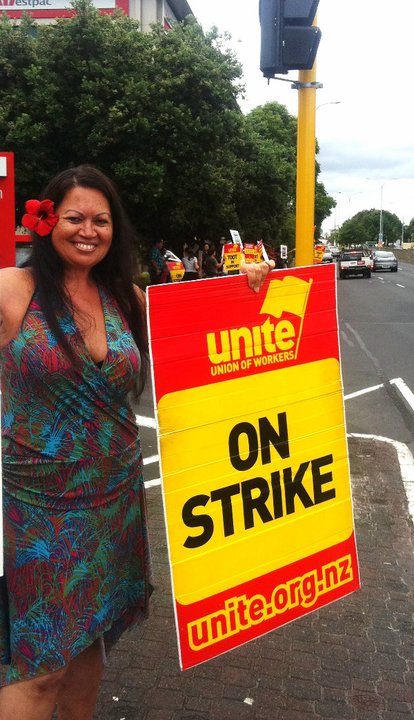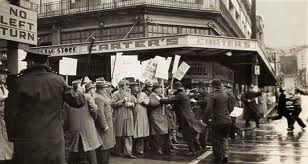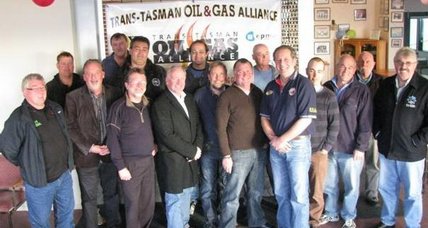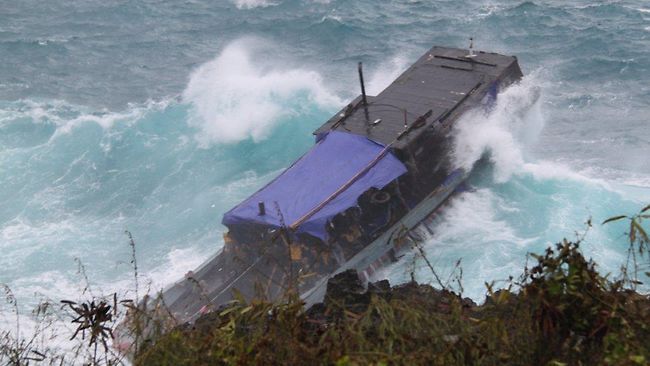Call centre workers strike to 'make a point to all those out there struggling with the same thing’
 Call centre staff who are members of Unite Union took strike action yesterday morning against their employer Salmat (also known as
Call centre staff who are members of Unite Union took strike action yesterday morning against their employer Salmat (also known as
Salesforce). Approximately 40 members took part in the action as part of the effort to achieve what will be their first pay rise in three
years. The worksite is located at the corporate complex on 666 Great South Road in Penrose, Auckland. With its objective of rebuilding amongst the vast unorganised sections of the working class, Unite has been present on the site for over two years.
Salmat is an outsource operation that holds contracts with major companies, one being Vodafone, for which Salmat has a contract for
handling both customer and business calls. In terms of the modern workplace it’s a success to have a strong union membership in an outsource operation.
Speaking from the picket line, Ross Asiata, one of Unite’s delegates at the workplace stated to media “Everything else around us increases, GST etc, but our pay rise (read ‘pay rate’) stays the same. As you can see behind me that’s the staff that are in the same boat as me, trying to make a point to management and to all those others that are out there struggling with the same thing”.
60 years since 1951 waterfront lockout
 February 15, 1951 was the beginning of the waterfront lockout, followed by solidarity strikes in the rail, coal, drivers and hydro industries. Its effects are still with us.
February 15, 1951 was the beginning of the waterfront lockout, followed by solidarity strikes in the rail, coal, drivers and hydro industries. Its effects are still with us.
The lockout was initiated by the New Zealand government and British ship owners to smash a militant working class willing to taking action for improved wages and conditions. However, the bureaucratic
Federation of Labour would not take the side of the locked out workers, and the watersiders’ union became increasingly isolated.
In April when the anti-worker legislation comes into effect the Council of Trade Unions (CTU) will hold the last of its rallies in response. This will take place under the ‘Fairness at Work’ slogan. Not only does the slogan sound conservative, the political problem with the slogan is that fairness in the workplace requires radical social change. Falling short of being able to achieve radical social change, appropriate working class slogans must be based on concrete claims that can advance the class struggle, such as freedom of association and action at work, specific wage formulations, and daring new mass demands. The use of soft phrases like ‘fairness’ can serve to limit workers’ expectations. Furthermore, ‘fairness’ is not measurable, meaning there is no political accountability for those who promote the use of the slogan.
Like the previous Fairness at Work marches, this April March will naturally be a bureaucratic affair because the working class has been disempowered by previous defeats, including the defeat in 1951. The
‘partnership and productivity’ approach to unionism, which the CTU has actively constructed and engaged in, has helped to further erode working class agency.
Another part of the problem is that at the top of the union movement, the central strategy has become the re-election of the Labour Party rather than the rebuilding of fighting unionism. But where was the
Labour Party for 151 days in 1951?–“Neither for nor against.”
Watch this award-winning documentary ‘1951’ and see how history repeats itself.
Also check out the March and April issues of The Spark which will carry a first-time published major two-part feature on the 1951 struggle.
Seventy percent of workers in New Zealand want new jobs
by Byron Clark
Job advertising website SEEK’s 2010 Employee Satisfaction and Motivation survey, which had about 3000 respondents, has found that 70% of New Zealand workers are wanting a new job this year with one in four planing on leaving their jobs in the next three months. The main reason was looking for ‘a challenge’ (28%) followed closely by feeling unappreciated at work (23%). Nearly half of those surveyed (49%) responded negatively to the question “How’s the current morale in your workplace” and a slightly higher number (52%) said they would not recommend their friends apply for jobs at the organisations employing them.
What would change that would be better management (49%) and more employee motivation (41%) about a quarter of respondents also said better pay and work environment would make a difference. This open ended question also drew responses such as “ Cut the amount of work required to increase the salary to bring it into line with the extra work done for no pay” and “stop breaching employment law”.
When asked what they liked about their jobs, the most common response was “people I work with” (19%) and when asked what they hated 24% said the stress levels and 23% said the overall quality of management. Those in ‘service and support’ industries appear to have it worst, feeling less happy and less secure, as well as more likely to hate aspects of their workplace. Most were planning on leaving their job in the next six months. While 30% of young “generation Y” workers cited boredom as a reason for seeking new jobs (compared to 15% for generation X and 12% for Baby Boomers) they “tend[ed] to be more upbeat, [and] confident about their future” according to the report.
If you're dissing the hookers you ain't fighting the power
Reprinted from Not Afraid of Ruins blog.
The new Auckland Supercouncil has voted to support a submission in favour of the Regulation of Prostitution in Specific Places Bill. This law would let Supercouncil pass bylaws banning street workers in specific areas.
Arguments in favour of criminalizing street workers are usually about protecting families, and moral values, and community standards, and ‘won’t somebody think of the children?’
But sometimes these arguments are also about ‘won’t somebody think of the hookers?’ because, according to Sandra Coney, ‘she supported the bill because prostitution was harmful to women and led to violence and murder’.
Let me break this down for you:
Yes, being a street worker probably isn’t an ideal employment situation for most workers. It’s possible that some street workers work on the street because they truly prefer it. But I suspect most sex workers who work on the street are doing it because they don’t have other options, like working at a brothel, or for an escort agency, or hiring a flat to work from. Maybe brothels and agencies won’t hire them because of a drug dependency or maybe because they’re transgendered or maybe they just managed to piss off all the bosses and maybe they can’t afford to put an ad up on nzgirls.com and hire a flat or a hotel room.
The point is that those sex workers who work on the street are usually the ones who are most marginalized, most disadvantaged, most discriminated against and most vulnerable to exploitation. Sandra Coney is right to worry about their safety. But she is living in an alternate universe if she thinks giving the police more power over street workers is going to protect them. Actually, all that’ll happen is that the police will have even more power to exploit and oppress street workers. This law will allow police to arrest anyone they think might be a sex worker. Who do you think police think might be a sex worker?[1] This law isn’t going to prevent sex workers from working on the street. Because it doesn’t actually address any of the reasons some sex workers end up working on the street. All this law will do is make street workers’ lives more difficult and more dangerous.
Continue reading “If you're dissing the hookers you ain't fighting the power”
How to fight redundancies
Don Franks
A contribution to a discussion among Workers Party members
I don’t have a problem in principle with unions calling on the government to intervene on redundancies.
Its a call that can come up from the floor of union meetings.
If I had a say at such a meeting I’d say, well, I don’t expect the bastards to do anything, and the history of both parties shows that they’re unlikely to help now. However,we’ve got nothing to lose so if you want to put it to them, it can’t hurt to try. I’d couple that with specific concrete demands related to the specific situation, to try and forestall any unwanted type of government help, such as counselling. It certainly is inadequate and a betrayal for union leaders to call on the government for help and leave it at that. Continue reading “How to fight redundancies”
Casino workers hit New Year with festivity and militancy
Jared Phillips
SkyCity Casino workers in Auckland took strike action after the clock turned twelve on New Year’s eve, with more than 150 employees filing from the building and filling up its Victoria street side, and with the same number, combined, walking out from later shifts.
[youtube=http://www.youtube.com/watch?v=iUrlwMp3qGo]
Continue reading “Casino workers hit New Year with festivity and militancy”
Public meeting on Terrorism Law
Black Gold
This is the year the government brought in new legislation attacking workers’ rights. While the new laws will make defending workers’ rights harder some workers are showing that there’s a fighting spirit and victories to be won.


In October this year union members working on the Kan Tan 4 drilling rig in Taranaki won a 30% pay increase in their collective agreement. It was the result of international solidarity among workers across the Tasman.
The EPMU launched a short film titled “Black Gold” about the 30% pay increase achieved by EPMU members in Taranaki covered by the Kan Tan 4 collective agreement. Continue reading “Black Gold”
Crucified on Christmas Island
 The death of 30 asylum seekers, whose overloaded wooden boat crashed on the rocks of Christmas Island and sank, speaks volumes about immigration controls. This 21st century barbarism needs to be abolished, just as the slave trade was.
The death of 30 asylum seekers, whose overloaded wooden boat crashed on the rocks of Christmas Island and sank, speaks volumes about immigration controls. This 21st century barbarism needs to be abolished, just as the slave trade was.
In the past year 5000 people made their way to Australia in flimsy boats via Indonesia. Most were from Afghanistan, Iraq and Sri Lanka fleeing war and genocide. Australia, as a key player in the US-led wars on Afghanistan and Iraq, is directly responsible for the desperate plight of those who turn to people-smugglers.
The journey to Australia invariably ends in prison or death. Continue reading “Crucified on Christmas Island”


